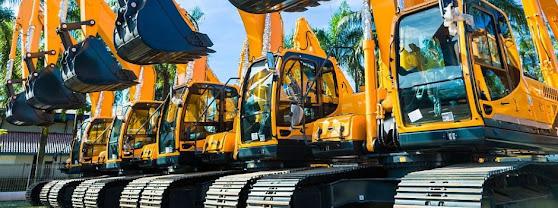As you weigh your options for acquiring your next excavator, you’re likely considering the age-old question: lease or buy? The answer depends on your unique business needs and financial situation. On one hand, leasing offers flexibility and access to the latest technology, but you’ll need to factor in potential mileage or hour limitations. On the other hand, buying upfront involves absorbing depreciation costs, but you’ll have full control over the equipment. So, what’s the best fit for your project requirements and budget? The decision isn’t straightforward, but by examining the total cost of ownership, you’ll be one step closer to making an informed choice. excavator leasing.
Weighing the Costs of Ownership
When you own an excavator, the costs add up quickly. You’ll need to consider the initial purchase price, which can be substantial.
On top of that, you’ll need to factor in ongoing expenses like maintenance, repairs, and fuel. Regular wear and tear means you’ll need to replace parts and perform routine maintenance tasks, like oil changes and filter replacements, to keep your excavator running smoothly.
Additionally, you’ll need to budget for unexpected repairs, which can be costly and time-consuming. Don’t forget about storage and transportation costs, as well as insurance premiums to protect your investment.
As your excavator ages, its value will depreciate, which can be a significant expense when it’s time to sell or upgrade. Furthermore, you’ll need to consider the opportunity cost of tying up a large amount of capital in a single piece of equipment.
Leasing Advantages and Disadvantages
Flexibility is key in the ever-changing landscape of construction and excavation projects.
Leasing an excavator provides you with the adaptability you need to take on diverse projects without a long-term commitment. You can lease an excavator for a specific period, usually 2-5 years, and return it when the project is complete or when your needs change.
This option also gives you the opportunity to try out different models and brands without a significant upfront investment.
On the downside, leasing typically comes with mileage or hour limitations, which can increase your costs if you exceed them.
You’ll also need to consider the fact that you won’t have any equity in the excavator at the end of the lease. Additionally, you may be responsible for maintenance and repairs, which can add to your expenses.
Furthermore, you might face penalties for excessive wear and tear or for not meeting the lease’s terms.
It’s essential to carefully review the lease agreement and weigh these factors against the benefits of leasing before making a decision.
Excavator Depreciation and Resale
As you weigh the pros and cons of leasing versus buying an excavator, depreciation and resale value become critical factors to consider.
When you buy an excavator, you’ll own it outright, but you’ll also absorb the full depreciation cost. Heavy equipment like excavators can depreciate rapidly, with some models losing up to 50% of their value within the first few years.
This means that if you sell your excavator in the future, you may not get a great resale price.
On the other hand, when you lease an excavator, the lessor typically absorbs the depreciation cost. This can be a significant advantage, especially if you plan to use the excavator for a short period.
However, you won’t have the opportunity to sell the excavator at the end of the lease, as you won’t own it. You’ll need to weigh the benefits of avoiding depreciation costs against the potential long-term benefits of owning the excavator outright.
Flexibility in Leasing Agreements
You’ve considered the impact of depreciation and resale value on your excavator purchase or lease decision.
Now, let’s dive into the flexibility aspect of leasing agreements. When you lease an excavator, you typically sign a contract with a fixed term, usually ranging from 2 to 5 years.
This commitment can be beneficial if you know exactly how long you’ll need the equipment. However, if your project timeline changes or your business needs shift, a leasing agreement can be adjusted to accommodate your new requirements.
Many leasing companies offer flexible terms, such as the option to return the equipment early or upgrade to a newer model. Some may also provide seasonal or variable payment structures to match your cash flow.
This flexibility can be particularly valuable if you’re unsure about your future equipment needs or want to avoid being stuck with a machine that no longer meets your requirements.
Choosing the Right Option for You
Typically, excavator purchases or leases are significant investments, and choosing the right option for your business requires careful consideration.
You need to evaluate your specific needs, financial situation, and operational goals before making a decision. Start by assessing your project requirements: how often will you use the excavator, and what type of projects will you be working on?
This will help you determine the necessary specifications and features for your equipment.
Next, consider your budget and cash flow. Can you afford the upfront costs of purchasing an excavator, or would a lease provide more financial flexibility?
You should also think about the total cost of ownership, including maintenance, repairs, and operating expenses. Additionally, factor in the benefits of leasing, such as access to newer technology and reduced equipment obsolescence.
Conclusion
You’ve weighed the costs, considered the pros and cons, and assessed your project requirements. Now it’s time to make a decision. Will you lease your next excavator, taking advantage of flexibility and newer technology, or buy, absorbing depreciation costs but building equity? Whatever you choose, make sure it aligns with your business goals and budget. The right option will help you dig into success, while the wrong one could leave you stuck in the mud.




